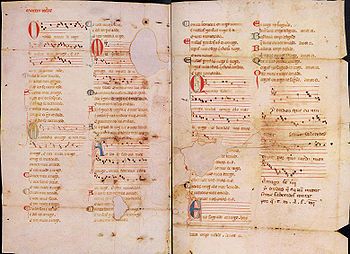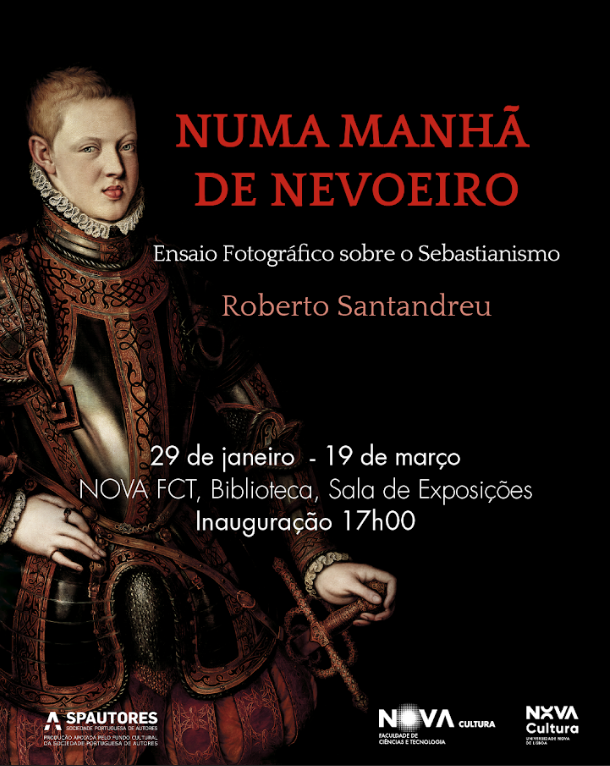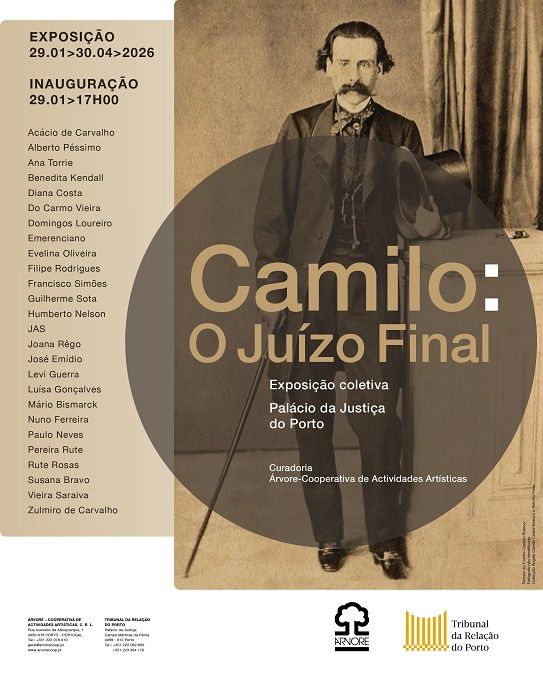Obras de referência da cultura portuguesa
CANTIGA 1: ONDAS DO MARE DE VIGO (Séc. XIII)
de MARTIN CODAX
Análise de João Pedro d'Alvarenga
Tradução de Alexandra Leitão

A história da lírica vernácula no Ocidente começa em França pelos anos em torno a 1100, na região a sul do vale do Loire e a oeste do vale do Ródano, um vasto território ao tempo próspero e pacificado, onde as grandes abadias beneditinas da reforma de Cluny, à sombra de uma rica e poderosa classe senhorial, eram as privilegiadas portadoras da cultura clássica e cultoras dos novos estilos poético-musicais latinos nascidos da prática dos tropos (isto é, da expansão das peças de canto da liturgia romano-franca por meio da adição de textos ou de melodias, ou de ambos). É assim que surgem na Occitânia os primeiros troubadors cujas obras foram passadas a escrito: Guilherme IX, Conde de Poitiers e Duque da Aquitânia (1071-1127) e, na geração seguinte, Cercamon, Marcabru e Jaufre Rudel (activos entre c.1130 e c.1150). Em pouco tempo, a sua arte estendeu-se a norte, às províncias da langue d'oïl, onde floresceram os trouvères. Pelo caminho de Santiago de Compostela, centro e destino espiritual da Europa medieval, o trovadorismo occitânico penetrou também na Península Ibérica. E da Galiza irradiou depois para os reinos cristãos vizinhos.
Modelada sobre as práticas transpirenaicas mas com aspetos vincadamente autóctones, de que se não pode negligenciar o importante influxo do Al-Andaluz, a tradição trovadoresca começou a afirmar-se nas regiões galaica e duriense a partir da última década do século XII. Surgem então as cantigas em galego-português, língua ancestral comum à faixa ocidental da Península.
Embora seja hoje geralmente reconhecido que a unidade textual da cantiga compreende igualmente os versos e uma melodia, da maioria do repertório conhecido preservam-se apenas os poemas, compilados nos denominados Cancioneiro da Ajuda, Cancioneiro da Biblioteca Nacional (ou de Colocci-Brancuti) e no Cancioneiro da Biblioteca Vaticana. As sete cantigas de amigo compostas por Martin Codax – enigmático jogral que se presume originário de Vigo e que terá vivido pelo terceiro quartel do século XIII – constituem uma rara exceção, porque são transmitidas também pelo chamado Pergaminho Vindel (atualmente na Pierpoint Morgan Library de Nova Iorque), onde se escreveram as melodias das cantigas 1-5 e 7. Nestas cantigas de Martin Codax são constantes os motivos do mar, nas invocações e nos refrões obsessivos.
A cantiga 1, Ondas do mare de Vigo, exemplifica o género da cantiga de amigo, cuja proximidade com as harjat árabes foi bem salientada por Manuel Pedro Ferreira. Tipicamente, constitui um monólogo de uma moça que pergunta pelo amigo ausente, evocando como confidente um elemento da Natureza (papel que em outras cantigas cabe também à madre ou às irmanas). A singela melodia ondulante das estrofes, idêntica nas duas frases mas subtilmente variada na segunda, é uma metáfora sonora simultaneamente do vaivém da água, da proximidade desejada e da ausência do amado e do paralelismo gramatical, técnica de desenvolvimento poético característica da lírica galego-portuguesa.
Gravações integrais das cantigas de Martin Codax disponíveis:
– Bella Domna – The Medieval Woman: Lover, Poet, Patroness and Saint, Sinfonye, dir. Stevie Wishart, Hypérion, 1988, CDA66283 (reed. Helios, 2006, CDH55207), CD
– Music for Alfonso the Wise, The Dufay Collective, Harmonia Mundi, [2003], HMU 907390, CD
– Martin Codax: Cantigas de amigo, Fin' Amor Ensemble, Musica Ficta, 2004, MF 8002, CD
– Cantigas: Jaufre Rudel, Martin Codax, Dom Dinis, Theatre of Voices, Paul Hillier, Andrew Lawrence-King, Harmonia Mundi, 1995, 2000 (reed. 2006), HMX 2907378.79, 2 CDs
SONG 1: ONDAS DO MARE DE VIGO (13th century) by MARTIN CODAX
The history of vernacular lyrics in the West begins in France circa 1100, in the region south of the Loire valley and west of the Rhone valley. It is a vast territory, at the time prosperous and peaceful, where the great Benedictine abbeys of the Cluny reform, protected by a rich and powerful seigniorial class, were the privileged holders of classical culture and the promoters of the new Latin poetic and musical styles born of the practice of the tropes (that is, expanding the songs of Romano-French liturgy by adding texts and/or melodies). So, in Occitania, we see the emergence of the first troubadours whose works were set down in writing: William IX, Count of Poitiers and Duke of Aquitaine (1071-1127) and, in the next generation, Cercamon, Marcabru and Jaufre Rudel (active between circa 1130 and circa 1150). The art soon spread northwards to the provinces of the langue d’oïl, where the trouvères flourished. By means of the route to Santiago de Compostela, spiritual centre and aim of medieval Europe, the art of the Occitanian troubadours spread to the Iberian Peninsula. And from Galicia it irradiated to the neighbouring Christian kingdoms.
Modelled on trans-Pyrenean practices but with markedly autochthonous aspects, where one should not forget the important influence of Al-Andalus, the tradition of the troubadours began to take hold in the regions of Galicia and the Douro, as from the last decade of the 12th century. It was the time of the emergence of songs in Galician-Portuguese, the ancient language common to the western strip of the Peninsula.
Although it is generally acknowledged today that the textual unity of the song also includes the verses and a melody, only the poems of most of the known repertoire have endured to our days. These have been compiled in songbooks known as Cancioneiro da Ajuda, Cancioneiro da Biblioteca Nacional (or Colocci-Brancuti) and the Cancioneiro of the Vatican Library. The seven cantigas de amigo composed by Martin Codax – an enigmatic jongleur we presume came from Vigo and lived in the third quarter of the 13th century – are a rare exception, because they are also transmitted through the Vindel Parchment (currently at the Pierpont Morgan Library of New York), containing the melodies of songs 1-5 and 7. Sea motifs are a constant in Martin Codax’s songs, in their invocations and obsessive refrains.
Song 1, Ondas do mare de Vigo, exemplifies the type of cantiga de amigo whose closeness to the Moorish harjat has been rightly highlighted by Manuel Pedro Ferreira. Typically, it constitutes a monologue by a moça (girl) asking for her absent amigo (friend), evoking as confidant an element of nature (a role that in other songs falls on the madre (mother) or the irmanas (sisters). The simple undulating melody of the strophes, identical in the two phrases but subtly varied in the second, is a sonorous metaphor both of the to-ing and fro-ing of the water, of the desired proximity and of the absence of the loved one, and also of the grammatical parallelism, a poetical development technique characteristic of Galician-Portuguese songs.
Available integral recordings of the cantigas of Martin Codax:
– Bella Domna – The Medieval Woman: Lover, Poet, Patroness and Saint, Sinfonye, dir. Stevie Wishart, Hyperion, 1988, CDA66283 (reprinted Helios, 2006, CDH55207), CD
– Music for Alfonso the Wise, The Dufay Collective, Harmonia Mundi, [2003], HMU 907390, CD
– Martin Codax: Cantigas de amigo, Fin' Amor Ensemble, Musica Ficta, 2004, MF 8002, CD
– Cantigas: Jaufre Rudel, Martin Codax, Dom Dinis, Theatre of Voices, Paul Hillier, Andrew Lawrence-King, Harmonia Mundi, 1995, 2000 (reprinted 2006), HMX 2907378.79, 2 CDs
Obras de Referência da Cultura Portuguesa
projeto desenvolvido pelo Centro Nacional de Cultura
com o apoio do Ministério da Cultura

 Divulgue aqui os seus eventos
Divulgue aqui os seus eventos













